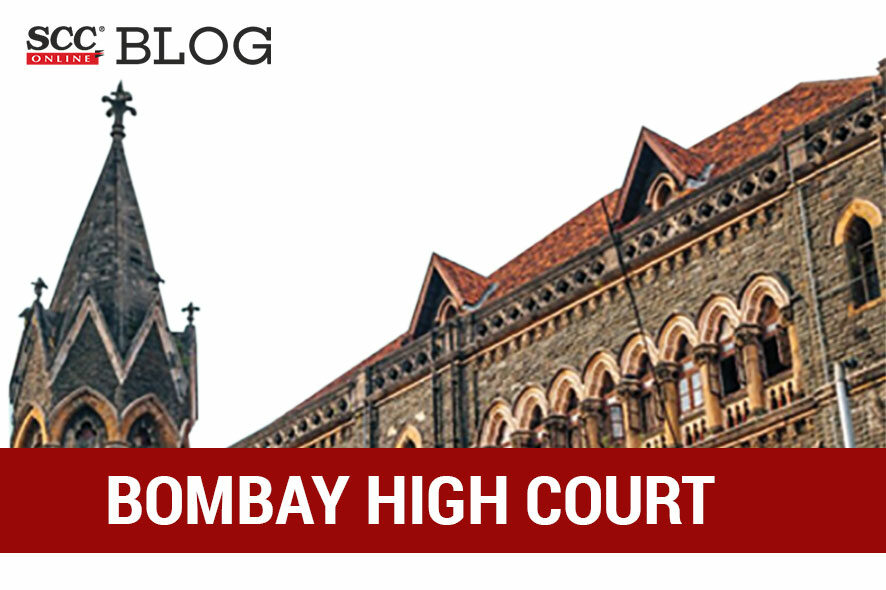Bombay High Court: In a Writ Petition under Article 226 of Constitution of India seeking compensation for death of an undertrial prisoner due to negligence on part of jail authorities, the Division Bench of Anuja Prabhudessai* and R.M. Joshi. JJ. observed negligence and lapses on the part of police and jail authorities and directed the State to pay compensation of Rs 10 lakhs to the petitioners.
The deceased was an undertrial prisoner who died while being in custody. The present petition has been filed by the parents, widow and children of the deceased under Article 226 of the Constitution seeking compensation of Rs 90 Lakhs for loss of life due to the negligence of the jail authority. It is alleged that the deceased was suffering from spondylosis and severe pain. It is alleged that the deceased did not receive proper treatment despite his request at the initial stage, his condition deteriorated and was eventually shifted to the government hospital. He died on 27-2-2012 and the petitioners claim that the reason of his death was due to negligence on part of the jail authority.
The Court observed the records of the deceased which reflect that the deceased was undergoing trial for offences under Sections 143, 147, 148, 326, 452, 506 read with Section 149 of the Penal Code, 1860. The Court also pointed towards no treatment from 7-2-2012 until he was shifted to the hospital, deceased’s application before the Magistrate stating his ailment and need for treatment with proper nutrition, and its dismissal, his admission to district hospital on 23-2-2012 and death on 27-2-2012. The post-mortem reveals death due to ‘Pulmonary Koch’s with Miliary Tuberculosis’ of Liver and spleen in Sero Positive Case.
The Court noted that the jail authorities were aware of deceased’s ailment and were duty bound to ensure necessary medical facility to him. It further added that when the doctor advised the deceased to be shifted to a government medical college for further treatment due to his critical condition, the Police Constable on duty made an endorsement that he was unable to shift the deceased and would have no complaint in case of risk to the life of the deceased. Such an endorsement, in the Court’s view, itself reflects the callous and insensitive mindset of police as well as jail authorities. The Court also noted that there was lack of medical treatment for the deceased and this fact has been ruled out in the Magisterial inquiry report.
The Court acknowledged that this is not a typical case of death due to custodial violence or torture. The Court referred to Supreme Court observations in Sube Singh v. State of Haryana, (2006) 3 SCC 178 regarding award of compensation against the State. It further relied on Sujata Mukunda Manerao v. State of Maharashtra, 2003 SCC OnLine Bom 474, providing for proper medical aid to inmates as a right under Article 21 of the Constitution.
Based on the records available, Court viewed that “there has been total negligence and lapse on part of the jail authorities in providing adequate, effective and proper medical treatment, and on part of the police guard on duty who declined to shift the deceased to Government Medical College, which has resulted in his death.”
The Court observed that the deceased was a 32-year-old young man with a family dependent on him, who was not a hardened criminal, who lost his life due to the failure of the jail authority to provide medical treatment. The Court further added that the right to health enshrined in Article 21, particularly of a prisoner who is deprived of personal liberty as per law, cannot be ignored. Referring to several decisions of the Supreme Court including right to live with human dignity under right to life, the Court accepted the State’s failure in providing medical treatment, taking care of them, ensuring safety and security to the prisoners and treating them with human dignity. The Court addressed the loss of love, affection, and his family’s dependence on the deceased, and acknowledged that human life cannot be compensated.
The Court held the petitioners entitled to compensation against the government’s failure in its duty. The Court directed the State of Maharashtra to pay compensation of Rs 10 lakhs to the petitioners and left the State at liberty to recover the amount from officers concerned for being negligent in providing medical aid to the undertrial prisoner.
[Vishnu v. State of Maharashtra, 2023 SCC OnLine Bom 562, judgment dated 2-3-2023]
*Judgment authored by: Justice Anuja Prabhudessai.
Advocates who appeared in this case :
For Petitioners: Advocate N.R. Thorat;
For State: Additional Public Prosecutor M.M. Nerlikar.






